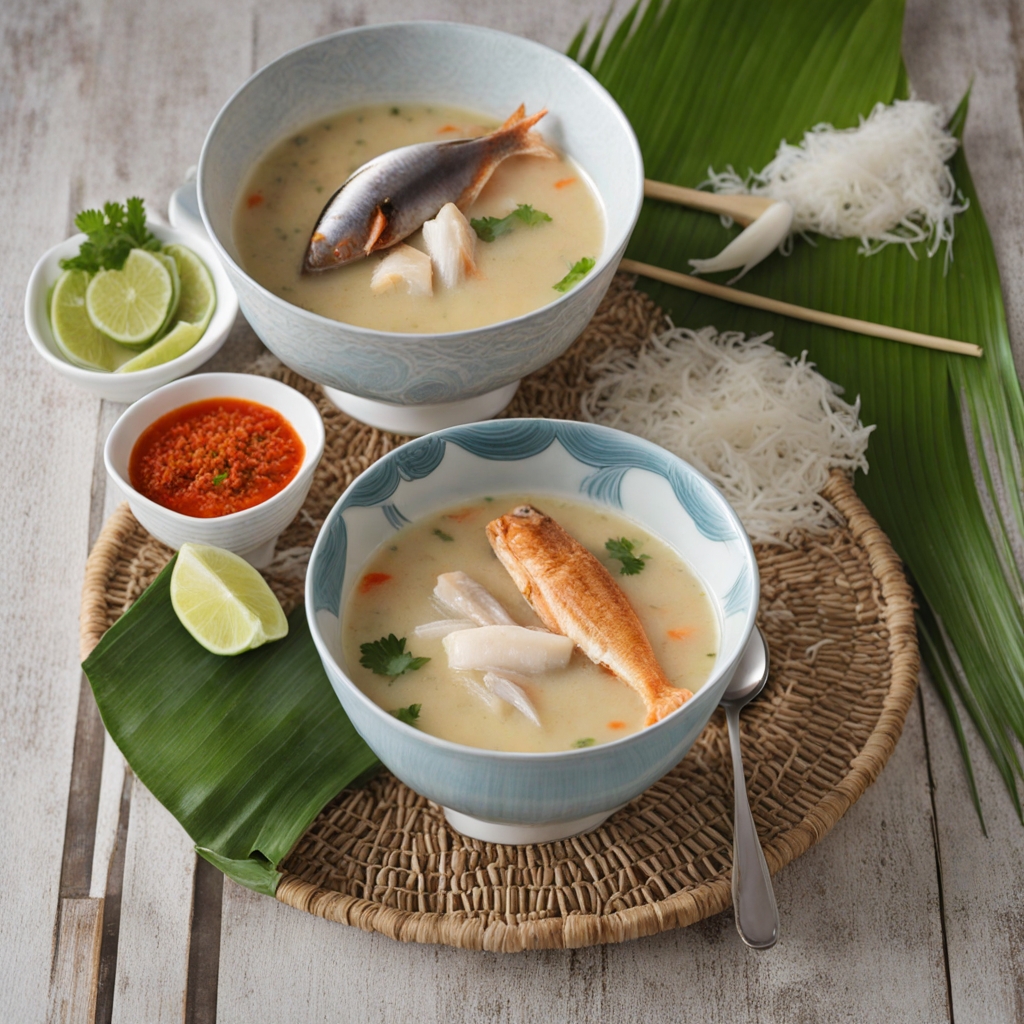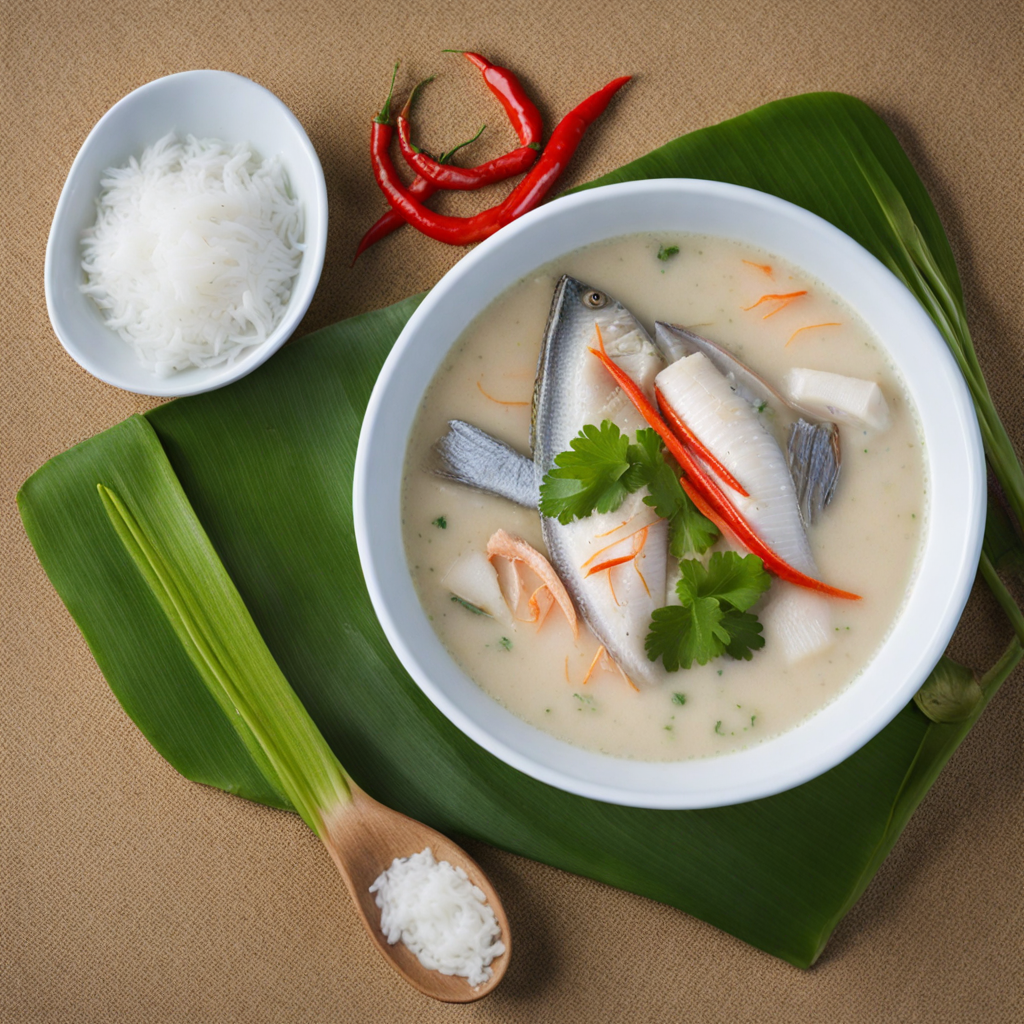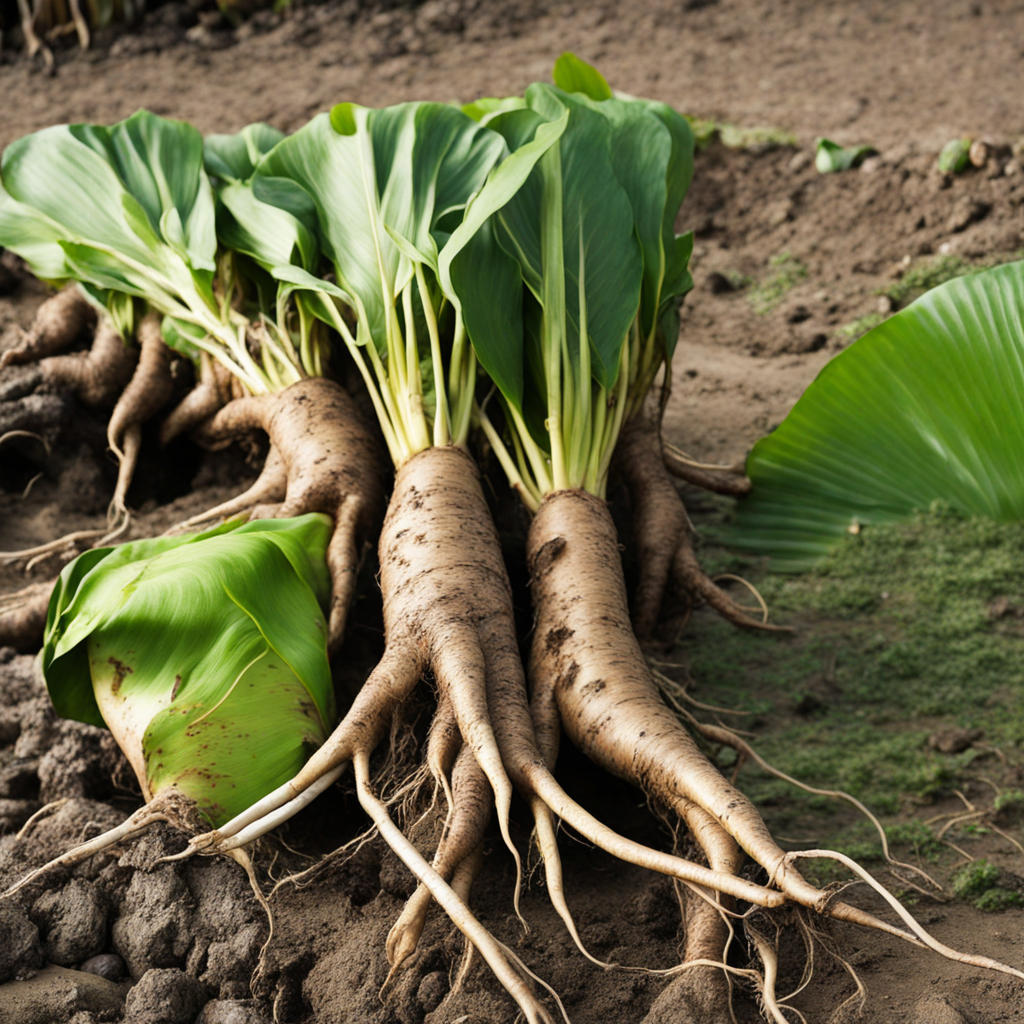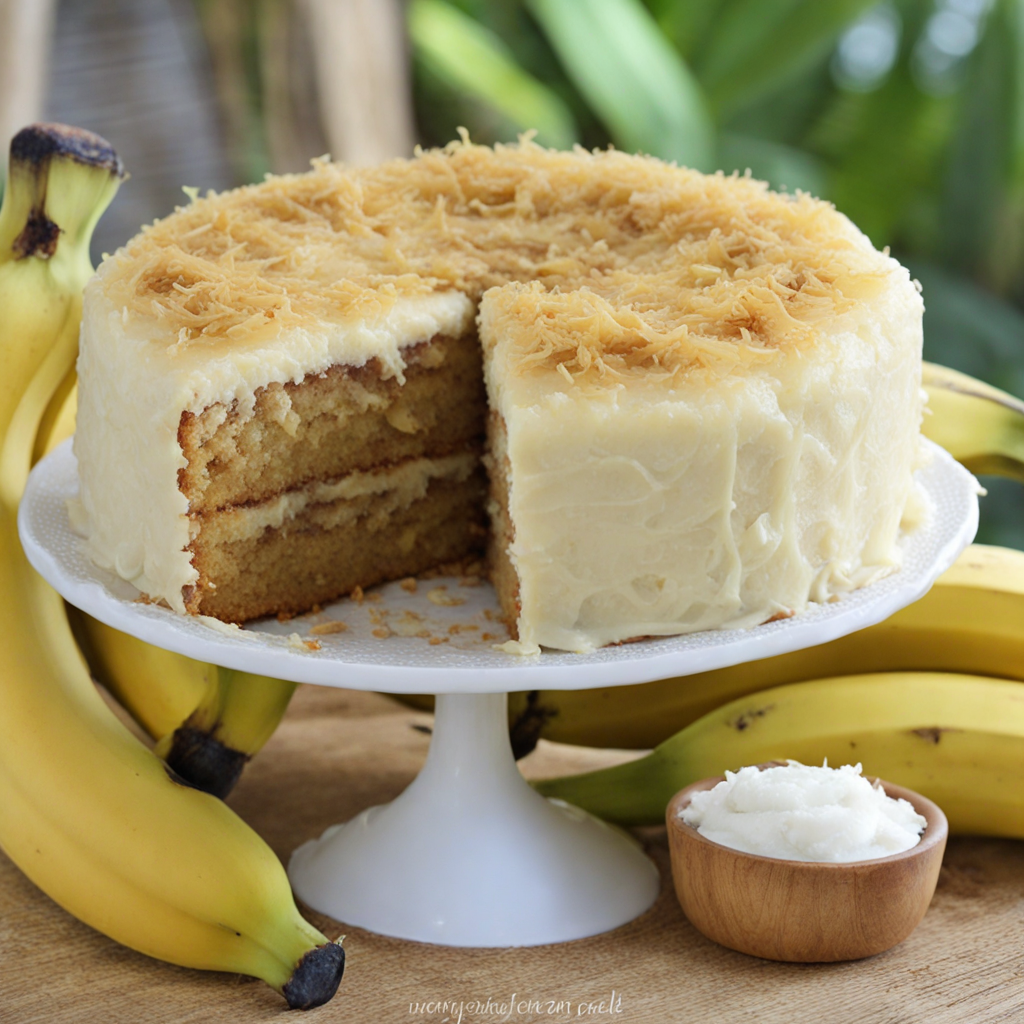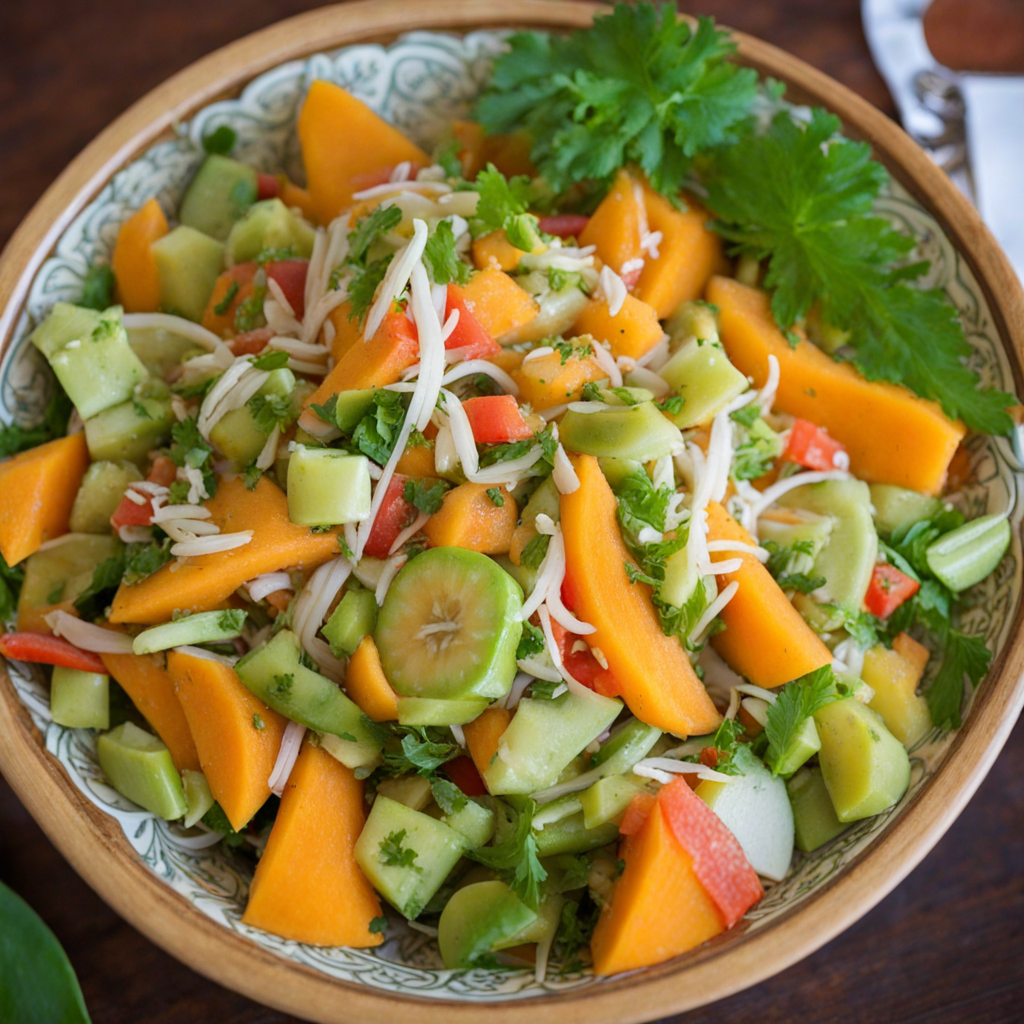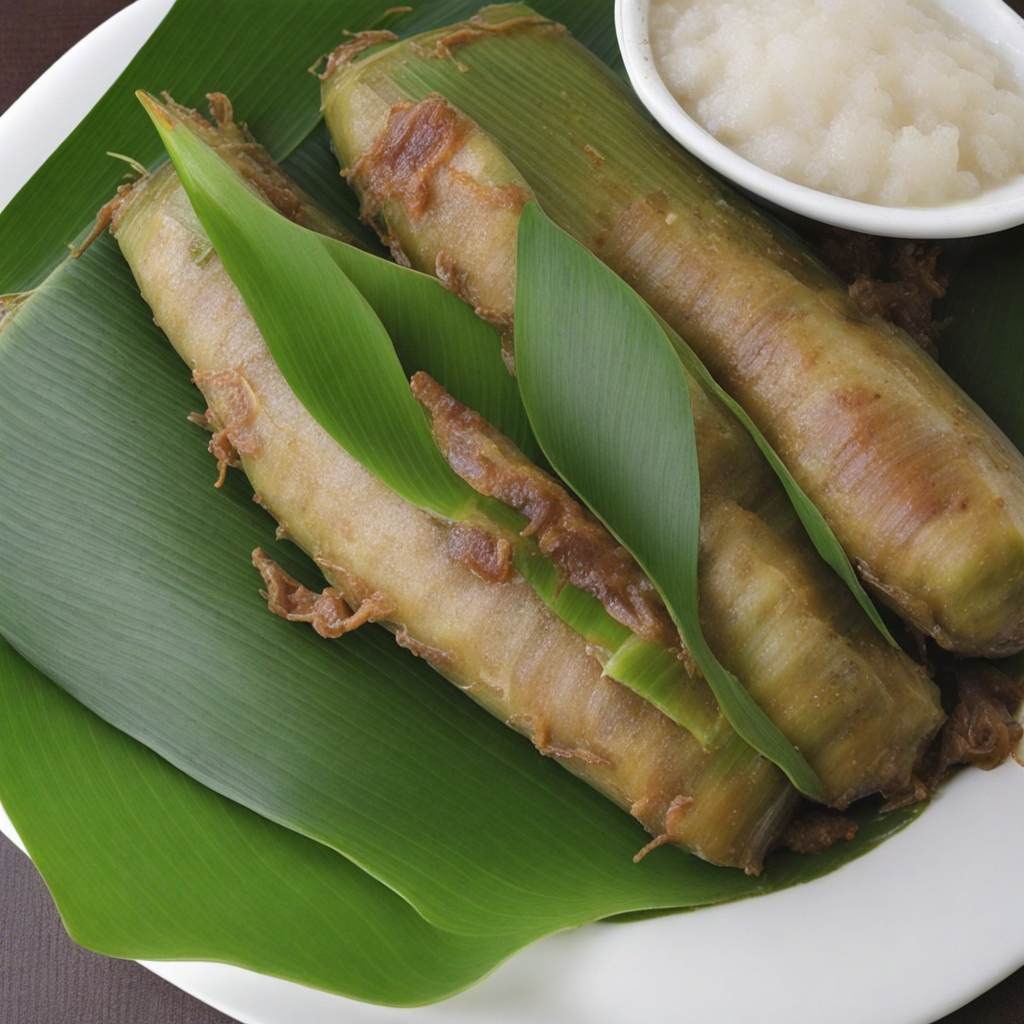Coconut Fish Soup
Coconut Fish Soup is a delightful culinary gem from the small island nation of Tuvalu, where the ocean's bounty meets the rich, creamy goodness of coconut. This dish is a celebration of fresh fish, typically sourced from the crystal-clear waters surrounding the islands, and is often prepared with local varieties such as parrotfish or snapper. The fish is lightly cooked in a fragrant broth made from coconut milk, which infuses the dish with a subtle sweetness and richness that perfectly complements the delicate flavors of the seafood. To enhance the taste profile, Coconut Fish Soup incorporates a variety of local ingredients such as fresh herbs, chili, and lime juice. These elements not only add depth and complexity to the soup but also introduce a refreshing zest that balances the creaminess of the coconut. The result is a vibrant and aromatic dish that evokes the essence of island life, where each spoonful transports you to the shores of Tuvalu, surrounded by swaying palm trees and the sound of gentle waves. This soup is typically enjoyed as a comforting meal, perfect for both casual gatherings and special occasions. Often served with steamed rice or traditional root vegetables, it invites sharing and camaraderie among family and friends. Coconut Fish Soup is more than just a dish; it is an experience that embodies the simplicity and beauty of Tuvaluan cuisine, making it a must-try for anyone looking to explore new and exciting flavors from this unique island nation.
How It Became This Dish
Supo Ika ma Niu: A Culinary Journey from Tuvalu #### Origins Supo Ika ma Niu, a traditional dish from Tuvalu, beautifully captures the essence of the Pacific Islands through its simple yet profound ingredients. This dish, which translates to “fish soup with coconut,” is emblematic of Tuvalu’s rich maritime culture and its reliance on the ocean for sustenance. Tuvalu is a small archipelago located in the Pacific Ocean, made up of nine islands, each encircled by vibrant coral reefs and bountiful waters. The islands’ geography has heavily influenced the local diet, which is predominantly based on fish, coconut, taro, and breadfruit. Historically, fishing has been a cornerstone of Tuvaluan life. The indigenous people have long relied on the abundant marine resources for their nutritional needs. The preparation of Supo Ika ma Niu reflects the traditional practices of fishing communities. Fishers would venture out into the lagoon or the open sea, utilizing traditional fishing methods such as hand lines, nets, and fish traps. Upon returning, they would share their catch with the community, often preparing it in ways that highlighted the natural flavors of the fish. #### Cultural Significance The significance of Supo Ika ma Niu extends beyond mere sustenance; it embodies the communal spirit and cultural identity of the Tuvaluan people. Food in Tuvalu is a central element of social gatherings, celebrations, and rituals. Sharing a meal, especially one as communal as Supo Ika ma Niu, fosters connections among families and friends, reinforcing social bonds and cultural heritage. Coconut, a key ingredient in this dish, holds profound cultural importance throughout the Pacific Islands. In Tuvalu, it is often referred to as the “tree of life.” Every part of the coconut palm can be utilized, from its fruit and water to its leaves and trunk. In Supo Ika ma Niu, the creamy coconut milk not only enhances the flavor of the fish but also symbolizes the resourcefulness and sustainability of Tuvaluan culture. The dish is often served during important occasions, such as weddings, festivals, and family gatherings, signifying hospitality and the sharing of blessings. Furthermore, the dish reflects the broader themes of environmental stewardship and respect for the ocean. Tuvaluans have a deep connection to their natural surroundings, and their culinary practices reflect an understanding of seasonal changes and sustainable fishing practices. The preparation of Supo Ika ma Niu is often done with mindfulness to the environment, advocating for the preservation of marine life for future generations. #### Development Over Time Over the decades, Supo Ika ma Niu has evolved while remaining deeply rooted in tradition. The basic recipe remains consistent: fresh fish, coconut milk, and seasonings such as onions, garlic, and sometimes chili for a hint of spice. However, variations have emerged, reflecting the influences of globalization and modern culinary trends. In the past, the dish was primarily made with locally caught fish like snapper or grouper. As Tuvalu’s economy has evolved, and with the rise of tourism, the availability of different types of fish has increased. Today, while traditional fish are still preferred, Supo Ika ma Niu can be made with a variety of seafood, including tuna and mackerel, catering to diverse tastes and preferences. The preparation methods have also seen subtle changes. Traditionally, cooking was done over an open flame or in an earth oven, a method that imparted a unique smoky flavor to the dish. While some families still adhere to these traditional methods, others have adapted to modern conveniences like gas stoves and electric cookers. This shift reflects the broader changes in lifestyle and technology within Tuvaluan society. Moreover, the exposure to international cuisines has led to creative adaptations of Supo Ika ma Niu. Influences from neighboring islands, as well as from countries like New Zealand and Australia, have introduced new spices and ingredients. Some cooks might add vegetables such as carrots or bell peppers, enhancing the dish’s nutritional profile and visual appeal. This blending of culinary traditions showcases the dynamic nature of Tuvaluan cuisine, where respect for tradition coexists with innovation. #### Contemporary Relevance Today, Supo Ika ma Niu remains a staple in Tuvaluan households and is celebrated during cultural festivals and national holidays. It serves not just as a dish but as a symbol of resilience and community. The Tuvaluan diaspora, which has spread across the globe due to climate change and economic factors, often prepares Supo Ika ma Niu as a way to connect with their roots. For many, making this dish is a nostalgic reminder of home, evoking memories of family gatherings and coastal sunsets. In recent years, with the growing awareness of climate change and its impact on small island nations, Supo Ika ma Niu has taken on a new layer of significance. The dish represents the fragility of Tuvalu’s environment, where rising sea levels threaten both the land and the fisheries that sustain the population. As Tuvaluans advocate for environmental protection and sustainable fishing practices, Supo Ika ma Niu stands as a testament to their connection to the ocean and their commitment to preserving their cultural heritage. #### Conclusion Supo Ika ma Niu is more than just a dish; it is a reflection of the life, culture, and values of the Tuvaluan people. Rooted in tradition yet adaptable to change, it embodies the spirit of community, sustainability, and resilience. As Tuvalu navigates the challenges of the modern world, Supo Ika ma Niu serves as a reminder of the importance of culinary heritage and the bonds that food can create. Through each bowl of fish soup, Tuvaluans celebrate their identity, their environment, and their enduring connection to the sea.
You may like
Discover local flavors from Tuvalu


